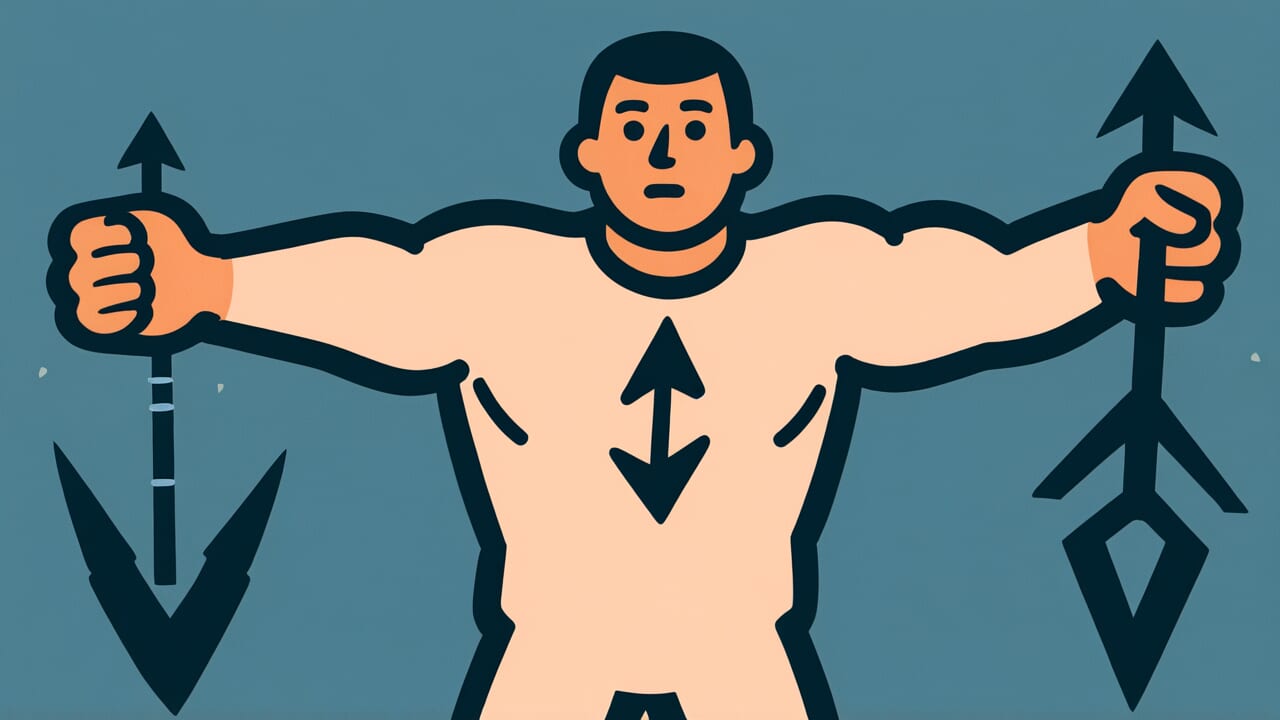How to Read “Arrows cannot pierce a strong warrior”
Gō no mono ni ya ga tatanu
Meaning of “Arrows cannot pierce a strong warrior”
“Arrows cannot pierce a strong warrior” means that you cannot easily oppose someone who is truly strong and resolute. It teaches that ordinary methods or direct challenges won’t work against a genuinely powerful opponent. You need more careful and skillful strategies.
This proverb applies when facing formidable opponents. It could be a business competitor, a championship sports team, or major life challenges. Whenever you encounter someone or something that cannot be easily overcome, this expression fits.
The word “resolute” is important here, not just “strong.” This refers not only to physical strength but also to mental toughness and firmness of will.
Against such opponents, brute force methods won’t work. You must use wisdom and develop strategies. Even today, this proverb reminds us that direct confrontation isn’t always the solution when facing difficult challenges.
Origin and Etymology
The exact origin of this proverb isn’t clearly documented in historical texts. However, we can make interesting observations from how the phrase is constructed.
“Strong warrior” refers to a resolute and powerful person. This term has been used since ancient times to describe samurai skilled in martial arts or people with mental fortitude.
“Arrows cannot pierce” means that attacks with bow and arrows don’t work. This expression emerged from the experiences of battle in Japan’s warrior society.
On the battlefield, people realized that direct attacks didn’t work against truly strong opponents. Bows and arrows were important long-range weapons, yet some opponents couldn’t be defeated even with these.
What’s interesting is that this proverb includes not just physical strength but mental toughness too. The character for “strong” means both hard and firm, and also implies an unyielding will.
The expression “arrows cannot pierce” also serves as a metaphor for having no way to attack or no method to deal with someone.
In other words, this proverb developed as a strategic lesson. It teaches that ordinary methods won’t work against truly strong people.
Usage Examples
- When facing the industry’s top company, arrows cannot pierce a strong warrior—there’s no chance of winning a direct price war
- That senior has both ability and respect, so arrows cannot pierce a strong warrior—ordinary methods won’t help us catch up
Universal Wisdom
“Arrows cannot pierce a strong warrior” offers deep insight into the nature of power in human society. Why has this teaching been passed down through generations?
It’s because humans instinctively admire strength while also feeling both fear and respect toward the powerful. Throughout history, truly strong people weren’t just those with physical power or authority.
They were people who combined mental toughness with wisdom. Against such opponents, shallow tricks or brute force attacks don’t work.
This proverb hides another profound truth. It teaches that “challenging the strong requires wisdom.” When people face difficulties, they often try to push through with force.
But such simple methods don’t work against truly strong opponents or challenges.
Our ancestors learned this truth from battle experience. True strength leaves no openings and has the power to withstand direct attacks.
That’s why challengers need creativity and ingenuity. This is the wisdom of the underdog and also respect for the strong.
This proverb captures why human society has valued not just power but wisdom. It shows the essence of what makes someone truly formidable.
When AI Hears This
In materials engineering, there’s a surprising fact: harder materials are more vulnerable to impact. For example, glass and ceramics are very hard, yet they break easily when dropped.
This happens because of “stress concentration.” When an arrow hits, force concentrates at that single point. Hard materials can’t dissipate the force and get destroyed.
Meanwhile, flexible materials like rubber or bamboo deform at the impact point. This spreads the force to surrounding areas and prevents destruction.
What’s fascinating about this proverb is that it uses “strong” in the opposite sense from physical hardness. Physically, “strong materials should be more easily pierced by arrows.”
Yet the proverb says “arrows cannot pierce.” Here, “strong” doesn’t mean material hardness but psychological strength—authority and dignity.
People hesitate to shoot arrows of criticism at authoritative figures. This is social dynamics, not physical law.
In materials engineering, flexibility provides defense. But in human society, the opposite happens—psychological hardness in the form of “unapproachable atmosphere” becomes a defensive wall.
The same word “strong” produces completely opposite effects in the physical world versus the social world. This contrast shows the fascinating multi-layered nature of language.
Lessons for Today
This proverb teaches you how to face difficult challenges. In life, you sometimes encounter high walls you must overcome.
It might be a powerful rival at work or your own limitations.
When that happens, attacking with brute force only exhausts you. What matters is stepping back and analyzing the situation calmly.
Acknowledge and respect your opponent’s strength, then think about where the breakthrough point might be. This isn’t running away—it’s smart strategy.
Modern society often treats direct confrontation as a virtue. But true wisdom means objectively assessing your own strength and choosing the most effective method.
Sometimes you take detours, sometimes you try completely different approaches. Such flexibility is the key to standing up to the strong.
If you’re standing before a big wall right now, remember this proverb. You don’t need to force a frontal assault.
Use your wisdom and be creative. Through that process, you’ll grow too.



Comments